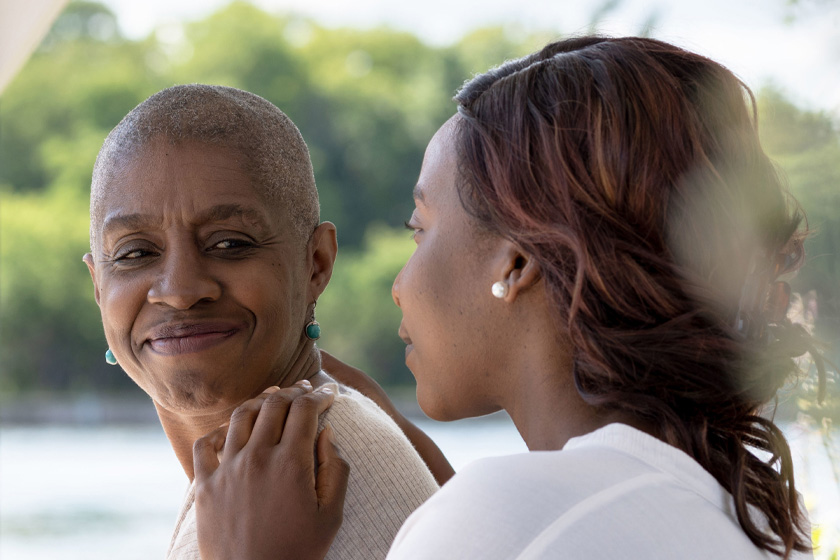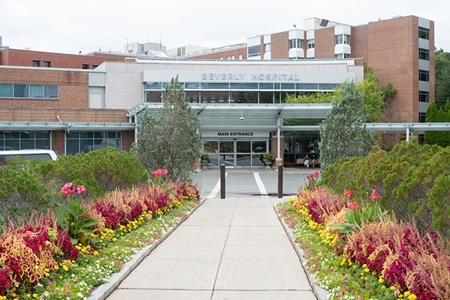One in Eight Men Will Be Diagnosed with Prostate Cancer
Beverly and Gloucester, MA – After being diagnosed with Stage 4 metastatic prostate cancer, 83-year-old Chet Brown was told he had five years to live. That was five years ago. And he's doing great. “I exercise, I walk my dog, I don't just sit around waiting to die. I have a positive attitude. I have grandkids — I want to stay around for a long time.”
He credits the treatment he received from the board-certified physicians at the Cancer Center at Beverly Hospital. He underwent hormone therapy for the first few years before switching to more traditional therapy, undergoing 10 rounds of radiation and 16 rounds of chemotherapy. “They were very helpful, never downbeat. I like where I'm going. They treat you like family.”
Like many men, Chet never had any symptoms that he found alarming. “I would urinate a lot more than normal at night. I didn't think it was a problem. I drank a lot of water during the day. I thought it was normal.” But when his PSA levels kept rising during his annual exams, his primary care physician ordered twelve prostate samples. They all showed cancer. “Obviously it had been festering for a long time.”
Prostate cancer is the most common cancer for men, other than skin cancer, typically affecting men age 50 and over. “Prostate cancer is slow growing and often has no symptoms,” said Daniel Blander, MD, Chief, Division of Urology at Beverly Hospital. “Men who have a diet high in fat from red meat are more likely to develop prostate cancer, but if caught early, the prognosis is very good. Prostate cancer can be a serious disease, but most men diagnosed with prostate cancer do not die from it.”
Blander says the symptoms to watch for are trouble when starting to urinate, a weak or interrupted stream, urinating more often, especially at night, pain in the back, hips, or pelvis, or pain when you urinate. Family history also plays a role in some individuals. Most men with these symptoms don't have prostate cancer, but consultation with a urologist will help guide a patient through appropriate screening.
Chet undergoes chemotherapy once a month now. He says he is once again sleeping well and urinating less often. “I've set my goal to live to 90. I encourage all my friends to get tested earlier. You don't want to mess around with it.”
About Beverly and Addison Gilbert Hospitals
Beverly Hospital is a full-service 373-bed community hospital founded in 1888 that serves more than 13 communities across Massachusetts’ North Shore and Cape Ann. With a medical staff of more than 500 physicians, the hospital provides quality, patient-centered care in maternity, pediatrics, surgical, orthopedics and cardiology, as well as other specialties.
Addison Gilbert Hospital is a 52-bed community hospital located in Gloucester, MA. Since its founding in 1889, Cape Ann residents have turned to the hospital when they needed care. Specialties include radiology, cancer care, pain management, cardiology, chronic disease management, inpatient geriatric services and emergency medicine.
Beverly and Addison Gilbert Hospitals are a part of Beth Israel Lahey Health, a healthcare system that brings together academic medical centers and teaching hospitals, community and specialty hospitals, more than 4,700 physicians and 39,000 employees in a shared mission to expand access to great care and advance the science and practice of medicine through groundbreaking research and education.




